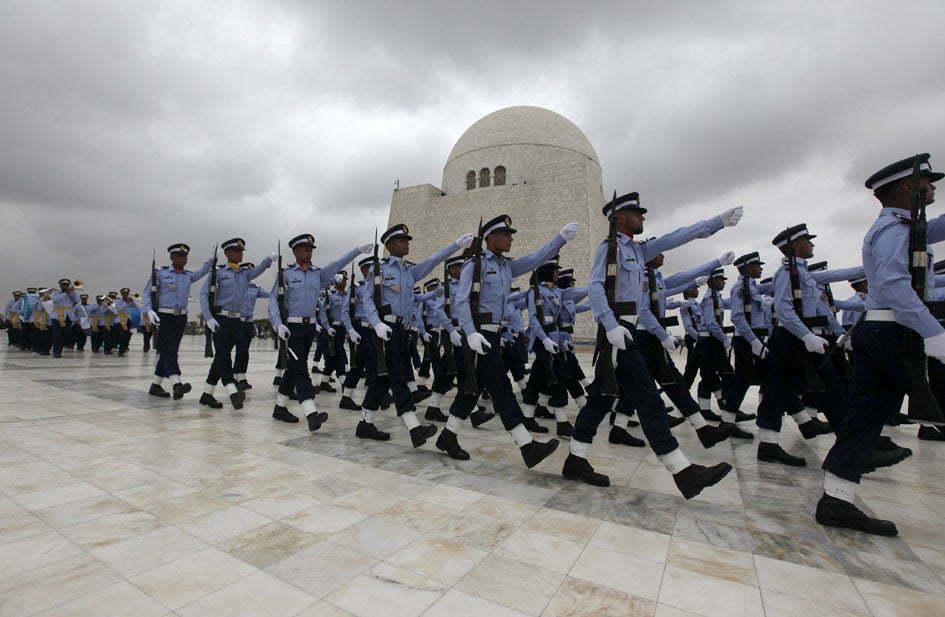It was around 0300 hours on 6 September 1965, when Indians crossed the international frontier of West Pakistan without a formal declaration of war and launched an offensive against Pakistan. As many historians would later recount, the initial assault was intense and led many to believe that India would ultimately prevail given the numerical superiority of its forces. However, the Pakistani armed forces quickly defied all these expectations with their moral force, bravery, and unparalleled valour.
There is a predominant view among military thinkers that although the physical force determines the type and scale of war, it is the ‘will to fight’ or ‘moral force’ that ultimately determines the outcome of war. It was this moral force that was on display from entire spectrum of the Pakistan Armed Forces during the 1965 War in general and on the 6th of September, 1965, in particular.
When Indian forces crossed the international border, on their western front near Lahore the Pakistani forces swiftly retaliated and launched a counteroffensive the very same day. Displaying extraordinary bravery and selflessness, the soldiers fought fiercely without regard for their own lives. Among them, Major Raja Aziz Bhatti played a significant role in the outcome of the battles for Lahore and ultimately embraced martyrdom.
The theatre of Sialkot saw a similar display of moral force, bravery, and valour from the Pakistan Army, who sacrificed their lives to halt the advance of Indian tanks. It is interesting to note here that the 1965 War witnessed some of the largest tank battles ever fought since World War II. One such battle was fought at Chawinda in the Sialkot sector- also known in the chronicles of history as ‘The Battle of Chawinda’. The battle ended in a significant victory for Pakistan whose armoured forces destroyed 120 tanks of India.
In addition, the Pakistan Air Force’s (PAF) heroic role during the 1965 War in securing and defending the nation’s airspace cannot be stressed enough. The PAF destroyed 100 Indian aircraft on the ground and in the air, and damaged more than 10, not-withstanding the damages inflicted by PAF’s night bombing. In addition, during the 1965 War, the PAF produced several heroes whose moral strength and bravery continue to inspire generations.
Among these heroes, to name a few, are Flight Lieutenant Yunus Hussain, Squadron Leader Sarfaraz Ahmad Rafiqiui, and Squadron Leader MM Alam, who had left an indelible mark on the history of air warfare. MM Alam, in particular, set a remarkable benchmark by defending Pakistani airspace with extraordinary skill, famously shooting down five Indian aircraft in less than 60 seconds during an engagement over Sargodha.
Besides these celebrated heroes, there are countless unsung heroes, both within the armed forces and among civilians, who played their roles silently in defending the beloved motherland during the 1965 War. These individuals, who laid down their lives in defending the country, embody the spirit of sacrifice and patriotism and thus merit recognition and acknowledgement. The nation is eternally grateful for their selfless sacrifices, which form the foundation of our enduring strength and resilience.
Beyond the moral force and valour of the armed forces, there is another key factor that enables Pakistan to defend itself against its adversary: the unity of the nation. From the bustling streets of Karachi to the rugged terrains of Khyber Pakhtunkhwa, a sense of oneness prevailed. Punjabis, Pashtun, Sindhis, Baloch, and all other ethnic groups put aside their differences to stand united in defence of their homeland.
Pakistan’s Defence Day is a tale of unity in diversity and stands as a beacon of hope in a country beset by intolerance, and polarisation. It provides an illustrating example and precedent to follow that despite differences, we can unify behind one another to advance a shared goal and defeat any enemy no matter how formidable it may be.
As we honour the memory of our great martyrs, let us also reaffirm our commitment to unity and solidarity. This day stands as a powerful reminder that our strength lies in our togetherness and that our diversity is a source of immense strength. Patriotism transcends all barriers, uniting us in a shared purpose and common destiny. It is high time that we celebrate this collective spirit and renew our dedication to building a stronger more unified nation.
Azhar Zeeshan is a researcher at the Centre for Aerospace and Security Studies (CASS), Lahore. He can be reached at info@casslhr.com





